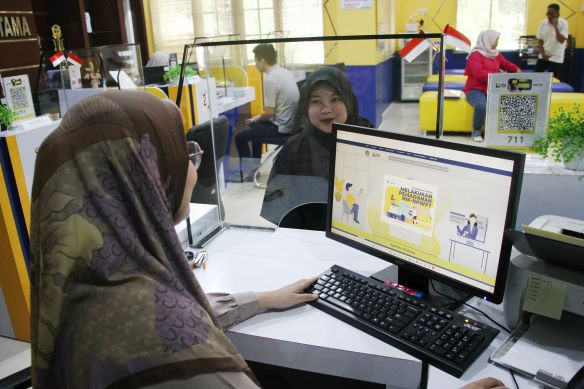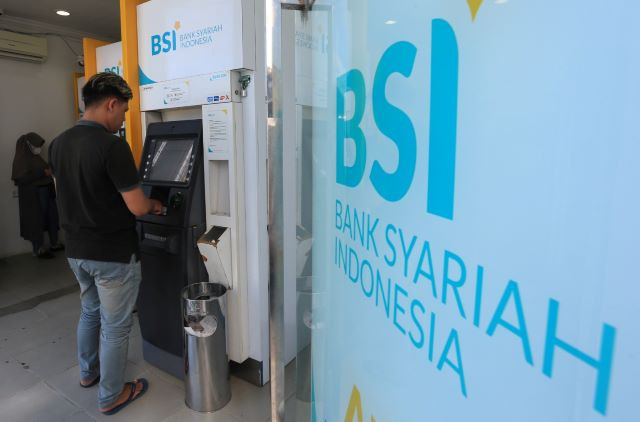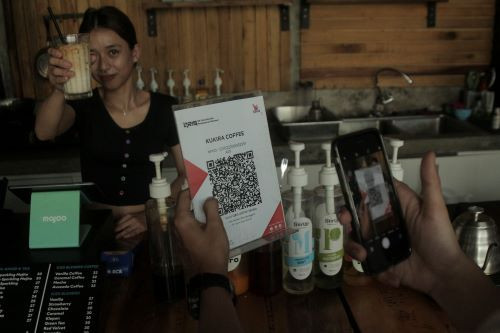Self-denial about Papua
What happened in East Timor decades ago could happen in Papua because discrimination and racism against the indigenous population persist.
Change Size
 Papuan students demonstrate for the independence of Papua province at the police headquarters in Surabaya, East Java, on December 1, 2021, to coincide with the anniversary of the Free Papua Movement (OPM). (AFP/Juni Kriswanto)
Papuan students demonstrate for the independence of Papua province at the police headquarters in Surabaya, East Java, on December 1, 2021, to coincide with the anniversary of the Free Papua Movement (OPM). (AFP/Juni Kriswanto)
H
arsh words and phrases like “unprofessional, ill-intentioned and one-sided” chosen by the Indonesian Mission at the United Nations in Geneva recently in response to the report of UN human rights rapporteurs on Papua have reminded us of the repeated denials from the same mission during Indonesia’s 24-year occupation of East Timor, now Timor Leste.
East Timor, then the country’s 27th province, voted for independence from the colonial power of Indonesia during a UN-sanctioned referendum in 1999. Indonesia invaded the tiny former Portuguese colony in 1975 and used to claim that a majority of the people there were grateful for joining Indonesia; that only a few wanted to part with their beloved Indonesia.
The Jakarta Post in its March 9 edition quoted the mission as saying that “the government will submit a strong protest through [the UN human rights body] for the unprofessional, ill-intentioned, one-sided and click-bait working method to establish negative public opinion”.
The mission accused the three rapporteurs of having worked “unprofessionally, not impartially and with bad intentions”.
Do not ever belittle the situation on the ground in the provinces of Papua and West Papua. What happened in East Timor decades ago could happen in Papua because discrimination and racism against the indigenous population persist.
Separatist groups, which the government refers to as criminal armed groups, have launched sporadic armed attacks on security forces and innocent people working in the territory. But we are often confused about whether the resistance movement is genuine or involves various interests of the elites inside and outside of Papua.
“Between April and November 2021, we received allegations indicating several instances of extrajudicial killings, including of young children, enforced disappearance, torture and inhumane treatment and the forced displacement of at least 5,000 indigenous Papuans by security forces.”
The three independent experts said in a statement uploaded on the UN human rights body’s official website on March 1.
In their estimation, between 60,000 and 100,000 people had been displaced since an escalation of violence in the provinces of Papua and West Papua began in December 2018.
“These cases may represent the tip of the iceberg, given that access to the region is severely restricted making it difficult to monitor events on the ground,” they warned.
The report was signed by the special rapporteur on the rights of indigenous peoples, Francisco Cali Tzay; the special rapporteur on the extrajudicial, summary, or arbitrary executions, Morris Tidball-Binz; and the special rapporteur on the human rights of internally displaced persons, Cecilia Jimenez-Damary.
The Foreign Ministry and the government alike should learn from our past mistakes. The government used to deny the reports of international media and organizations, including the UN human rights body, claiming that the situation in East Timor was much better than what they saw.
We understand the Foreign Ministry has to listen to the voices of other state institutions such as the Indonesian Military (TNI) and the Defense Ministry on domestic security affairs, including on Papua.
Some Indonesian diplomats have complained that they have had to defend something they did not believe in. Now it’s time for diplomats to bolder in speaking the truth with their counterparts at home.
There is no choice for the government; it must listen to the people of Papua and West Papua and stop pretending as if everything is OK in their province.










